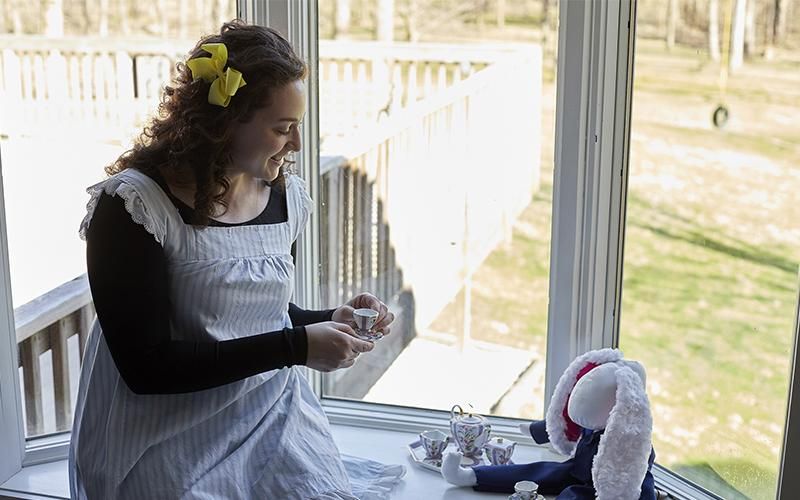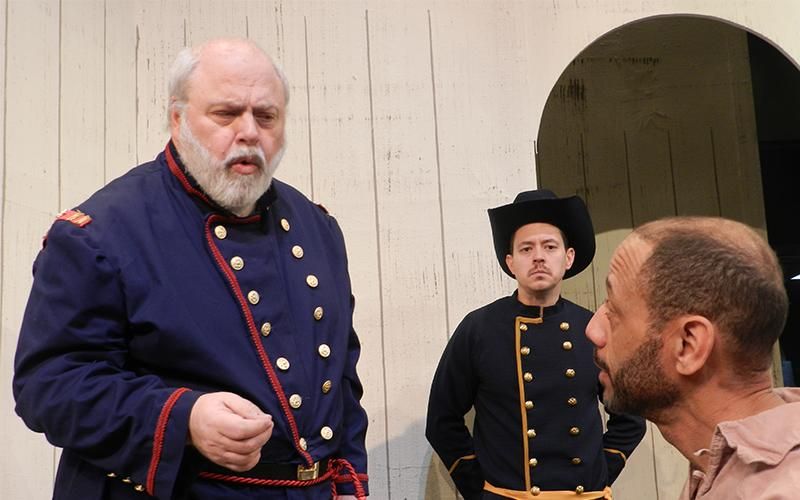Thanks to the Purdue University – Fort Wayne Department of Theatre, I spent Good Friday watching a play asking us to consider forgiving Judas for his role in the death of Jesus.
The Last Days of Judas Iscariot, written by Stephen Adly Guirgis, is unlike any play I have seen. In it, Guirgis pulls together a group of often seemingly unrelated characters and lines of thinking that challenge audience members to understand the actions of not only Judas, Jesus, and a few Jewish and Roman leaders of whom any familiar with Jesus’ final days will already have connected, but also of the likes of Mother Teresa and Sigmund Freud.
Upon entering the theater, the stage showed that this was going to be a full-blown courtroom drama. The judge’s bench was high, a clear sign about the distance between judges and those whose fate they decide. Before the courtroom drama began, a pair of young actors came onto the edge of the stage and it’s immediately clear that there is conflict between them. They are, of course, Judas and Jesus, and the latter is trying his best to comfort his betrayer.
Next, we meet Henrietta, the despondent mother of Judas. After that, the action moves to the courtroom where a judge is calling to his bailiff for his next case. It takes high-level references (all the way up to God) for him to finally agree to hear the case of whether Judas should remain in hell or be given grace. Finally, Fabiana Aziza Cunningham, the defense attorney, convinces him and the plot advances.
The rest of the plot is difficult to summarize without giving too much away and must be seen to be even mostly understood. Surprisingly, much of this play is hysterically funny, as was evident on opening night by a group of extremely loud laughers. The use of expletives is heavy and, at least partially because of the connection to religion, might shock many.
Director Mark Ridgeway has done remarkable work pulling together what is likely a difficult play to manage since it’s such an odd mix of comedy and high drama pulling attention here and then there and back again. The elements provided by the production team work, too.
Two tried and true members of the local acting community, Bob Haluska and Kate Black, join a strong group of student actors. Haluska and his booming voice are just right for the role of Judge Littlefield and Black makes a charming Mother Teresa, who flirts with the prosecution attorney.
The attorneys in the courtroom probably have the most lines of any actors in the play. As Fabiana, Freshman Bella Hadley is quite good. She is consistently the most serious voice of the four members of court. Jordan Plohr plays Egyptian lawyer Yusef El-Fayoumy brilliantly. His accent feels right and his delivery of hysterically funny lines is spot on.
As the understandably brooding Judas, Hunter Evans, a sophomore, is also well cast. He shows good range, especially in scenes during which the character is a child playing with a top and another in which he is drunk. Jue-Quaylin Coleman, who plays Jesus, does not have as much time on stage, but he does well in a role that primarily sees him offering comfort to his disciple.
Timya Townsend plays Saint Monica, a character with a foul mouth and interesting takes on Judas and countless other characters. Satan is brought to fun and sexy life by Valleri Bowman, who is always a delight to watch perform.
While this play might turn off certain types of Christians because of its messages as well as dialogue, The Last Days of Judas Iscariot both entertains and provokes a good deal of thought about Judas as well as forgiveness and understanding. But those might just be the people who could, with open minds, benefit most from seeing this play.





